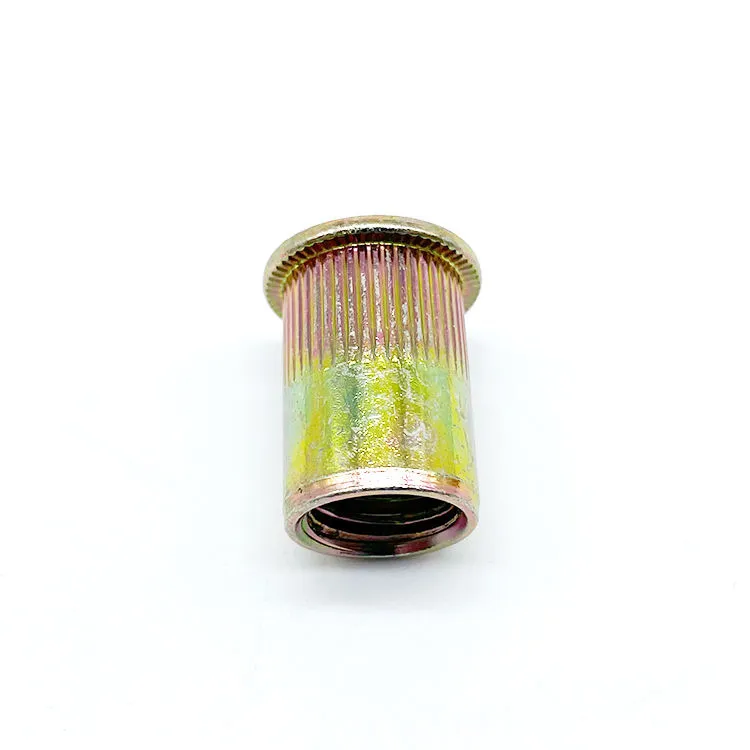

stainless steel fasteners
10月 . 21, 2024 13:18 Back to list
stainless steel fasteners
Stainless Steel Fasteners The Ultimate Choice for Durability and Reliability
Stainless steel fasteners have become an essential component in various industries, revered for their unparalleled strength, corrosion resistance, and aesthetic appeal. These fasteners—encompassing bolts, screws, nuts, washers, and anchors—are critical in applications ranging from construction and automotive to marine and aerospace. This article explores the features, benefits, and applications of stainless steel fasteners that make them a preferred choice among engineers and manufacturers.
One of the most significant advantages of stainless steel is its intrinsic resistance to rust and corrosion. The primary alloying element in stainless steel is chromium, which forms a passive oxide layer that protects the underlying metal from moisture, salt, and various chemicals. This makes stainless steel fasteners ideally suited for outdoor environments, marine applications, and industries where exposure to corrosive substances is a concern. For instance, in coastal construction projects, the use of stainless steel fasteners ensures the longevity of structures, significantly reducing maintenance costs over time.
Durability is another hallmark of stainless steel fasteners. They are known for their tensile strength, which allows them to withstand high levels of stress without breaking or deforming. This robustness is particularly beneficial in critical applications where safety and reliability are paramount. In the automotive sector, for example, stainless steel fasteners contribute to the overall structural integrity of vehicles, ensuring that components remain securely attached under varying operational conditions.
stainless steel fasteners

Moreover, stainless steel fasteners are available in a variety of grades, each offering unique properties tailored to specific applications. The most common grades include 304 and 316 stainless steel. Grade 304 is often utilized in general-purpose applications due to its excellent corrosion resistance and ease of fabrication. In contrast, Grade 316, which contains molybdenum, is more resistant to pitting and can withstand harsher environmental conditions, making it ideal for marine or chemical-related applications.
In addition to their functional benefits, stainless steel fasteners also provide aesthetic appeal. Their lustrous finish adds a sleek and modern look to products, which is particularly important in consumer goods and architectural designs. This visual appeal, combined with their performance characteristics, makes stainless steel fasteners a versatile choice for many applications.
The environmental impact of using stainless steel fasteners is also noteworthy. Stainless steel is 100% recyclable, reducing waste and promoting sustainability. The long lifespan of stainless steel fasteners minimizes the need for replacements, further contributing to environmental conservation.
In conclusion, stainless steel fasteners stand out for their corrosion resistance, durability, versatility, and sustainability. Whether in construction, automotive, or marine applications, they provide a reliable solution that meets the demands of modern engineering. As industries continue to prioritize quality and longevity in their materials, the popularity of stainless steel fasteners is sure to persist, making them an essential component in the toolkit of engineers and manufacturers alike.
Latest news
-
Premium Self Tapping Metal Screws: Strong & Easy Install
NewsAug.02,2025
-
Premium Fasteners Manufacturer | AI-Driven Solutions
NewsAug.01,2025
-
Hot Dip Galvanized Bolts - Hebei Longze | High Strength, Corrosion Resistance
NewsAug.01,2025
-
High-Strength Hot Dip Galvanized Bolts - LongZe | Corrosion Resistance, Custom Sizes
NewsAug.01,2025
-
Best Self Tapping Screws for Drywall - Fast & Secure Installation
NewsJul.31,2025
-
High-Strength Hot Dip Galvanized Bolts-Hebei Longze|Corrosion Resistance&Customization
NewsJul.31,2025

